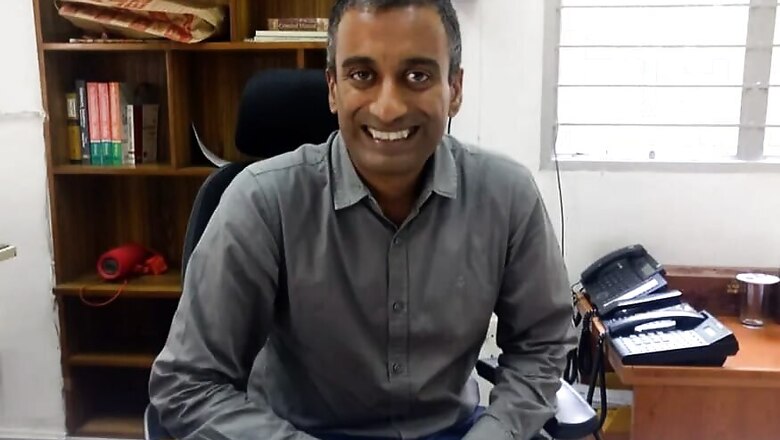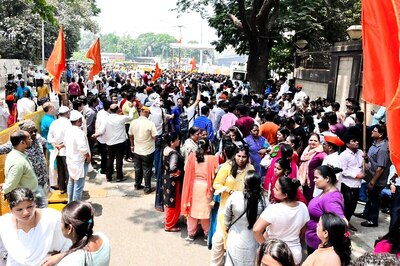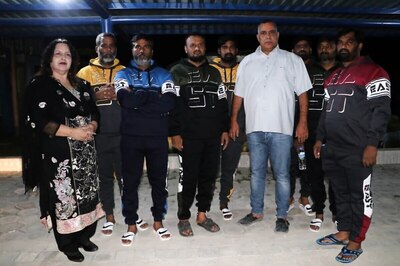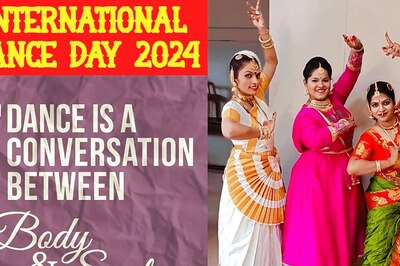
views
The creation of the 20-member oversight board by social media giant Facebook arguably tackles some of the the biggest challenges of the social media space today, namely with regards to content moderation, free speech and individual dignity. The members will ensure that free speech is balanced and individual dignity preserved, said Sudhir Krishnaswamy, the vice-chancellor of the National Law School of India University and also the only Indian member of the new Oversight Board.
On Wednesday, Facebook announced the creation of the 20-member Oversight Board, which many have already termed it as the Menlo Park-headquartered technology giant’s “Supreme Court”. The Board is also equipped with a special power, wherein, it can rescind decisions by the company on whether certain content should be allowed on both Facebook and Instagram. In an interview with Moneycontrol.com, Krishnaswamy pointed out that members of the oversight board will work on a part-time basis and the decision-making process will be panel-based as well.
It is part time only
“This is a very part-time association. The decision-making process will be panel-based. When you are made part of a panel, then you will participate. There are 20 members and we are not going to sit together but mostly it will be a few hours a week or something like that. Once the panel takes a decision, it will be confirmed by the entire board. These will not be individual decisions,” Krishnaswamy said.
Not Representing India
But the 44-year-old also pointed out that he won’t be representing cases related to India or any specific geographies per se but across the world. “Technically, I am not representing India. At any point in time, the panel can call other experts for help. These can be linguistic experts, cultural experts, whoever they think is useful to that case.”
Clearing the air that Facebook won’t be involved in helping the board conducting meetings, Krishnaswamy asserted that the board will take such decisions independently but might coordinate with the company in certain matters.
No Facebook involvement in decision making
“We are an independent oversight board, Facebook is not involved. My appointment was also handled by the board. To the extent of managing content on Facebook and Instagram, we will coordinate with them to get those files but they will not be part of the decision-making process," he said. "What is important here is that I don’t report to anybody at Facebook and I don’t engage with anybody there. Resources have been placed in an independent and an irrevocable trust," he added.
Asked on how the newly-formed oversight board will balance the freedom of expression and defamatory statement on Facebook, Krishnaswamy said that the 20-member board will not get involved in Facebook’s way of working with local judicial authorities which will continue as well.
"Firstly, jurisdictional laws and rules will continue to apply. The way Facebook is working with local judicial authorities that will continue. We will not get involved there," he said. At the same time, Krishnaswamy said, the board's primary aim is to preserve the dignity of the individual and equality on Facebook while curbing the use of hate speech and abusive language on the platform.
Political advertising remains a concern
As far as political advertisements on Facebook is concerned, which are often peppered with controversial contents and fake news, with experts clamouring the company to introduce a stringent fact-check filter, Krishnaswamy added that is precisely the reason why the oversight board has been constituted. "This issue around political interference in Facebook is an old problem and in fact valid for all the internet platforms. Facebook has faced problems of this nature in the past and in some cases, they have not been able to respond in a way the entire community could be happy. That is exactly why the board has been constituted," he said.
"But is there any magic wand? No. But at least we can say this is much better than what existed before. Previously, some decisions were taken opaquely and unilaterally by the company. Now there is a process through which you can challenge and raise that grievance and you will get a fair, well-articulated and well-argued conclusion to the question," he pointed out.
Diversity and its challenges
Commenting on Facebook's content moderation policy, Krishnaswamy said that the board will continue working with the company's existing policy. He also obliquely referred to the fact that given the scale and diversity of a fast-growing internet userbase in India, it will be difficult for the board to implement a change.
According to a recent report, by the Internet and Mobile Association of India (IAMAI), India has over 504 million active internet users. The report also revealed that in rural India, the number of actively accessing the internet increased by 30 million since last March.
"When we start, we will continue to work with the policy that Facebook has. Also, we have publicly stated that we are committed to international human rights. These two are our normative commitments. Policies change in two major ways. First, they change by interpretation and second, they evolve," he said. "We will publish an annual report about the kinds of cases we have taken up and Facebook’s level of compliance. This will be a public report. Now in that way policy will also evolve."
Last year, Facebook CEO Mark Zuckerberg also made it clear that Facebook’s problems in tackling misinformation, fake news have got so big that only artificial intelligence has a chance at solving them over their human moderators.
Commenting on that, Krishnaswamy said, "There are already two layers with respect to content moderation. The first layer is the AI layer, where technology is used to moderate content. Second, is the human-moderation layer. I think Facebook already has a strong human-moderation setup." "We are the third layer where things will come when either party is not satisfied but whatever we decide is binding on both the previous layers of moderation," he added.




















Comments
0 comment